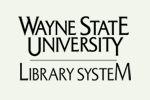Abstract
The indisputable growth which will take place in the older American population over the next four decades and the predictable changes in the characteristics of that population allow occupational forecasts of an increase in jobs which directly or indirectly serve the aged. This is one reason for the persistence of gerontology training programs in higher education.
While such programs obviously develop a solid academic foundation in gerontology, it is equally important that prospective gerontologists or gerontological human service professionals gain first-hand experience in working with the elderly. Such an experience, and the student's reaction to it, achieves several goals, including broadening the student's understanding of aging and the elderly and helping the student decide on the type of career for which he or she is best suited.
It is suggested that such field experience with the aged is not only essential, but should be accomplished as early as possible in the gerontology curriculum. As an example of such an endeavor and the results it can yield, information is presented on the development, implementation, and outcomes of a project pairing students with senior citizens. Limitations and the applicability of this type of project to other sociology subfields are discussed.
Recommended Citation
Rosenberg, Edwin
(1993)
"Footprints on the Sands of Time: A Student-Senior Citizen Community Project,"
Sociological Practice: Vol. 11:
Iss.
1, Article 20.
Available at:
https://digitalcommons.wayne.edu/socprac/vol11/iss1/20
